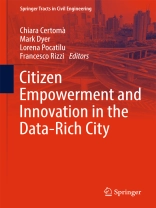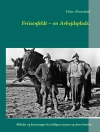This book analyzes the ongoing transformation in the “smart city” paradigm and explores the possibilities that technological innovations offer for the effective involvement of ordinary citizens in collective knowledge production and decision-making processes within the context of urban planning and management. To so, it pursues an interdisciplinary approach, with contributions from a range of experts including city managers, public policy makers, Information and Communication Technology (ICT) specialists, and researchers. The first two parts of the book focus on the generation and use of data by citizens, with or without institutional support, and the professional management of data in city governance, highlighting the social connectivity and livability aspects essential to vibrant and healthy urban environments. In turn, the third part presents inspiring case studies that illustrate how data-driven solutions can empower people and improve urban environments, including enhanced sustainability. The book will appeal to all those who are interested in the required transformation in the planning, management, and operations of data-rich cities and the ways in which such cities can employ the latest technologies to use data efficiently, promoting data access, data sharing, and interoperability.
Tabla de materias
Manifesto for Collaborative Urbanism.- Framework for Collaborative Urbanism.- Using Big and Small Urban Data for Collaborative Urbanism.- Crowdsourcing Processes for Citizen-Driven Governance.- Integral Approach to Urban Design in a Data-Rich City Context.- Collaborative Planning Through Visualization: Learning from Urban Living Labs.- A Social Work Perspective on Socio-Technological Innovations in Urban Planning and Development.- Time Quality – Measure for Quality of Place.- Designing a Social Urban Networks to Promote Smart Participation in Matera (Italy).












